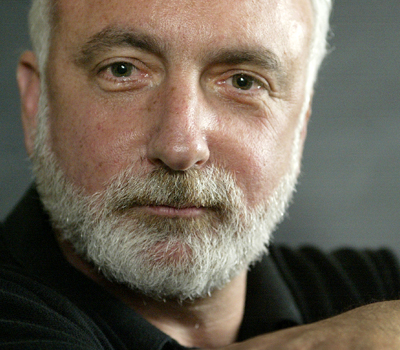Understanding why adolescents make risky choices
The greatest threats to the health and well-being of young people in developed societies are not illness and disease but choices youth make -- the things kids do that jeopardize themselves and others, including reckless driving, unprotected sex, experimentation with drugs, and delinquency. Because most forms of risky and reckless behavior peak in adolescence, Dr. Laurence Steinberg, of Temple University, has sought to understand these behaviors and explore ways of preventing behaviors that have harmful and life-threatening consequences. His research is concerned with the treatment of adolescents and youth in contemporary society and is at the intersection of adolescent brain and behavioral development. His research has numerous applications that will improve the well-being of young people and their families.
Dr. Steinberg's research solves pressing social problems with rigorous scientific research. His previous research has had a systemic impact on America's youth, as evidenced by the Supreme Court citing his research supporting their decision to abolish the juvenile death penalty. While his research is grounded in empirical science, it has had a significant impact on public policy. Dr. Steinberg explains that as a researcher, he has "an obligation to do work on things that are important in people's lives and to try to do work that will improve the well-being of kids and their families." This obligation is lived out as he approaches his research by beginning with a societal problem and then tackling how such problems can be solved scientifically. As one of the world's leading experts on adolescence and as the author or editor of 17 books, Dr. Steinberg is a researcher who aims to provide strategies for maintaining the safety and well-being of children and adolescents.
Current research includes:
-
Peer Influence: Dr. Steinberg is investigating the ways in which peers influence adolescent risk-taking. Research has shown that peers dramatically influence the decisions adolescents make; Dr. Steinberg's current research uses brain imaging and behavioral experiments in order to understand the neural and behavioral factors that account for the peer effect. By answering why adolescents make poorer decisions when surrounded by their peers, researchers can design better programs and interventions to help diminish adolescent risk-taking.
-
Making Decisions: Dr. Steinberg examines the ways in which core psychological processes that affect judgement, decision-making, and risk-taking develop between the ages of 10 and 30. He is especially interested in the implications of such research for legal and social policies that affect teenagers and young adults, particularly in the context of criminal law. His research has already improved policy-level changes that have affected juvenile offenders in the U.S.
-
Adolescents in the Military: In combat, when the army sends soldiers, they send them in groups of four called fireteams. Most of the soldiers in these fireteams are adolescents. Dr. Steinberg has begun investigating the ways in which the peer effect may influence decision-making while in combat, and how the age mix of fireteams can be altered to improve warriors' decision making. Outcomes of such research may help improve decision-making of soldiers, and save the lives of young warriors.
Bio
Laurence Steinberg, Ph.D., one of the world's leading experts on adolescence, is a Distinguished University Professor and the Laura H. Carnell Professor of Psychology at Temple University. He taught previously at Cornell University, the University of California, Irvine, and the University of Wisconsin--Madison. Dr. Steinberg is the author of more than 350 articles and essays on development during the teenage years, and the author or editor of 17 books. He has been a featured guest on numerous television programs, including CBS Morning News, Today, Good Morning America, 20/20, Dateline, PBS News Hour, and The Oprah Winfrey Show, and is a frequent consultant on adolescence for print and electronic media, including the New York Times and NPR. He has also written for the New York Times, Wall Street Journal, Washington Post, USA Today, Slate, and Psychology Today. A graduate of Vassar College and Cornell University, Dr. Steinberg is a Fellow of the American Academy of Arts and Sciences, the American Psychological Association, and the Association for Psychological Science.
Dr. Steinberg initially went into developmental psychology to better understand how we become who we are, which led him to the study of adolescence. As a graduate student, he learned that developmental science could be used to inform policy and practice. He therefore became especially interested in applied research on children and youth. For the past 40 years, Dr. Steinberg has studied a variety of policy-related topics including child labor, school reform, and juvenile justice, among others, as well as practical topics, including parent-adolescent relationships, with the hope of improving the lives of young people. In addition to his research, Dr. Steinberg does a lot of writing for general audiences in an effort to "give science away". Aside from research, in his free time, Dr. Steinberg is a loyal Philadelphia Eagles football fan, an avid reader, and enjoys playing bridge.
Website: www.laurencesteinberg.com
In the News
Los Angeles Times, November 4, 2014
TIME, October 31, 2014
The New York Times, September 21, 2014
Salon, September 14, 2014
The New York Times, April 27, 2014
Slate, February 11, 2014


